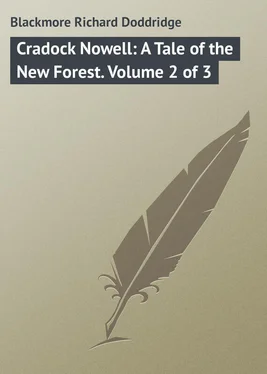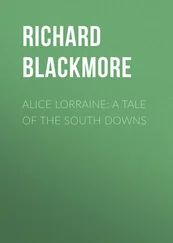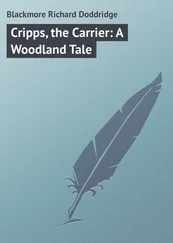Richard Blackmore - Cradock Nowell - A Tale of the New Forest. Volume 2 of 3
Здесь есть возможность читать онлайн «Richard Blackmore - Cradock Nowell - A Tale of the New Forest. Volume 2 of 3» — ознакомительный отрывок электронной книги совершенно бесплатно, а после прочтения отрывка купить полную версию. В некоторых случаях можно слушать аудио, скачать через торрент в формате fb2 и присутствует краткое содержание. Жанр: foreign_prose, на английском языке. Описание произведения, (предисловие) а так же отзывы посетителей доступны на портале библиотеки ЛибКат.
- Название:Cradock Nowell: A Tale of the New Forest. Volume 2 of 3
- Автор:
- Жанр:
- Год:неизвестен
- ISBN:нет данных
- Рейтинг книги:3 / 5. Голосов: 1
-
Избранное:Добавить в избранное
- Отзывы:
-
Ваша оценка:
- 60
- 1
- 2
- 3
- 4
- 5
Cradock Nowell: A Tale of the New Forest. Volume 2 of 3: краткое содержание, описание и аннотация
Предлагаем к чтению аннотацию, описание, краткое содержание или предисловие (зависит от того, что написал сам автор книги «Cradock Nowell: A Tale of the New Forest. Volume 2 of 3»). Если вы не нашли необходимую информацию о книге — напишите в комментариях, мы постараемся отыскать её.
Cradock Nowell: A Tale of the New Forest. Volume 2 of 3 — читать онлайн ознакомительный отрывок
Ниже представлен текст книги, разбитый по страницам. Система сохранения места последней прочитанной страницы, позволяет с удобством читать онлайн бесплатно книгу «Cradock Nowell: A Tale of the New Forest. Volume 2 of 3», без необходимости каждый раз заново искать на чём Вы остановились. Поставьте закладку, и сможете в любой момент перейти на страницу, на которой закончили чтение.
Интервал:
Закладка:
Richard Doddridge Blackmore
Cradock Nowell: A Tale of the New Forest. Vol. 2 (of 3)
CHAPTER I
It was a Tuesday evening when Cradock Nowell and Amy Rosedew signed and sealed, with the moonʼs approval, their bond to one another. On the following day, Dr. Hutton and wife were to dine at Kettledrum Hall; and the distance being considerable, and the roads so shockingly bad – “even dangerous, I am told, to gentlemen who have dined with me , sir,” said Kettledrum, in his proudest manner – they had accepted his offer, and that of Mrs. Kettledrum, which she herself came over to make, that they should not think of returning until after breakfast on Thursday. In consequence of her husbandʼs hints, Rosa felt the keenest interest in “that Mrs. Kettledrum. Leave her to me, dear Rufus. You need not be afraid, indeed. Trust me to get to the bottom of it.” And so she exerted her probing skill upon her to the uttermost, more even than ladies usually do, when they first meet one another. Of course, there was no appearance of it, nothing so ill–bred as that; it was all the sweetest refinement, and the kindest neighbourly interest. They even became affectionate in the course of half an hour, and mutual confidence proved how strangely their tastes were in unison. Nevertheless, each said good–bye with a firm conviction that she had outwitted the other. “Poor thing, she was so stupid. What a bungler, to be sure! And to think I could not see through her!”
But the return–match between these ladies, which was to have come off at Kettledrum Hall – where, by–the–by, there appeared a far greater performer than either of them – this interesting display of skill was deferred for the present; inasmuch as Rosa was taken ill during the mysteries of her toilet. It was nothing more serious, however, than the “flying spasms,” as she always called them, to which she had long been subject, and which (as she often told her husband) induced her to marry a doctor.
Rufus administered essence of peppermint, and then a dose of magnesia; but he would not hear of her coming with him, and he wanted to stop at home with her, and see that she sat by the fire. She in turn would have her way, and insisted that Rue should go, “for he had made himself such a very smart boy, that she was really quite proud of him, and they would all be so disappointed, and he was taller than Mr. Kettledrum, she felt quite sure he was.” The bearing of that last argument I do not quite perceive, but dare not say that she erred therein, and to Rue it was quite conclusive. So Ralph Mohorn was sent for, the pony–carriage countermanded, and Rufus set forth upon Polly, whose oats were now restricted.
Kettledrum Hall stood forth on a rise, and made the very most of itself. Expansive, and free, and obtrusively honest, it seemed to strike itself on the breast (as its master did) with both gables. A parochial assessment committee, or a surveyor for the property–tax, would have stuck on something considerable, if they had only seen the outside of it. Look at the balustrade that went (for it was too heavy to run) all along the front of it, over the basement windows. No stucco, either; but stone, genuine stone, that bellied out like a row of Roman amphoræ, or the calves of a first–rate footman. After that, to see the portico, “decempedis metata,” which “excipiebat Eurum” – not Arcton in this climate. No wonder – although it was rotten inside, and the whole of it mortgaged ten fathom deep – that Bailey Kettledrum hit his breast, and said, “Our little home, sir!”
“Your great home, you mean,” said Rufus; “what a noble situation! You can see all over the county.”
They had come to meet him down the hill, in the kindest country fashion, Mr. and Mrs. Kettledrum, like Jack and Jill going for water.
“Not quite that,” replied Kettledrum; “but we saw you with my binocular, between two and three miles off, and became so anxious about Mrs. Hutton, that I said to my wife, ‘Put your bonnet on;’ and she only said, ‘Bailey, put your hat on;’ nothing more, sir, I assure you; nothing more, sir, upon my honour.”
Rufus could not see exactly why there should have been anything more, but he could not help thanking them for their kindness, and saying to himself, “What nice people! Quite an agricultural life, I see, in spite of that grand mansion.”
“Now,” said Mr. Kettledrum, when Polly had been committed to one of the stable–boys – but Rufus still wanted to look at her, for he never grew tired of admiring anything that belonged to him, and he knew they wouldnʼt do her legs right – “now, Dr. Hutton, you have come most kindly, according to your promise, so as to give us an hour or two to spare before the dinner–time. Shall we take a turn with the guns? I can put my hand on a covey; or shall we walk round the garden, and have the benefit of your advice?”
Rufus looked in dismay at his “choice black kerseymeres;” he had taken his “antigropelos” off, and was proud to find not a flake on them. But to think of going out shooting! He ought not to have dressed before he left home, but he hated many skinnings. And he could only guess the distance from the lodge to this place. So he voted very decidedly for a walk in the kitchen–garden.
Into this he was solemnly instituted, and the beauties all pointed out to him. What a scene of weeds and rubbish! How different from Bull Garnetʼs dainty and trim quarters, or from his own new style of work at Geopharmacy Lodge! Rotten beansticks crackling about, the scum of last summerʼs cabbages, toad–stools cropping up like warts or arums rubbed with caustic, a fine smell of potato–disease, and a general sense of mildew; the wall–trees curled and frizzled up with aphis, coccus, and honeydew; and the standards scraggy, and full of stubs, canker, and American blight, sprawling, slouching, hump–backed, and stag–headed, like the sick ward of a workhouse fighting with tattered umbrellas.
“Ah,” said Rufus, at his wits’ end for anything to praise, “what a perfect paradise – for the songsters of the grove.”
“Oh,” replied Mr. Kettledrum, “you should hear the Dook admire it. ‘Kettledrum, my boy,’ he said, when he dined with me last Friday, ‘there is one thing I do envy you – no, sir, neither your most lady–like wife, nor yet your clever children, although I admit that neither of them can be paralleled in England – but, Kettledrum, it is – forgive me – it is your kitchen–garden.’ ‘My kitchen–garden, your grace,’ I replied, for I hate to brag of anything, ‘it is a poor thing, my lord Dook, compared to your own at Lionshill.’ ‘May I be d – d,’ his grace replied, for I never shall break him of swearing, ‘if I ever saw anything like it, dear Kettledrum, and so I told the Duchess.’ And after all, you know, Dr. Hutton, a man may think too little of what it has pleased God to give him.”
“Well,” said Rufus to himself, “Iʼm blessed if you do. But I donʼt like you any the worse for a bit of brag. I have met great brags in India, and most of them honest fellows. But I must peg him down a bit. I must, I fear; it is my duty as an enlightened gardener.”
“But you see, now,” said Bailey Kettledrum, smacking his lips, and gazing into profundity, “you see, my dear sir, there is nothing ‘ab omni parte beatum;’ perhaps you remember the passage in the heroic epistles of – ah, Cicero it was, I believe, who wrote all those epistles to somebody.”
“No doubt of it,” said Rufus Hutton, who knew more of Hindustani than of Latin and Greek combined; “and yet St. Paul wrote some.”
“Not in Latin, my dear sir; all St. Paulʼs were Greek. ‘Nihil est,’ I now remember, ‘ab omni parte beatum.’ I donʼt know how it scans, which I suppose it ought to do, but that isnʼt my look–out. Perhaps, however, you can tell me?”
Читать дальшеИнтервал:
Закладка:
Похожие книги на «Cradock Nowell: A Tale of the New Forest. Volume 2 of 3»
Представляем Вашему вниманию похожие книги на «Cradock Nowell: A Tale of the New Forest. Volume 2 of 3» списком для выбора. Мы отобрали схожую по названию и смыслу литературу в надежде предоставить читателям больше вариантов отыскать новые, интересные, ещё непрочитанные произведения.
Обсуждение, отзывы о книге «Cradock Nowell: A Tale of the New Forest. Volume 2 of 3» и просто собственные мнения читателей. Оставьте ваши комментарии, напишите, что Вы думаете о произведении, его смысле или главных героях. Укажите что конкретно понравилось, а что нет, и почему Вы так считаете.












